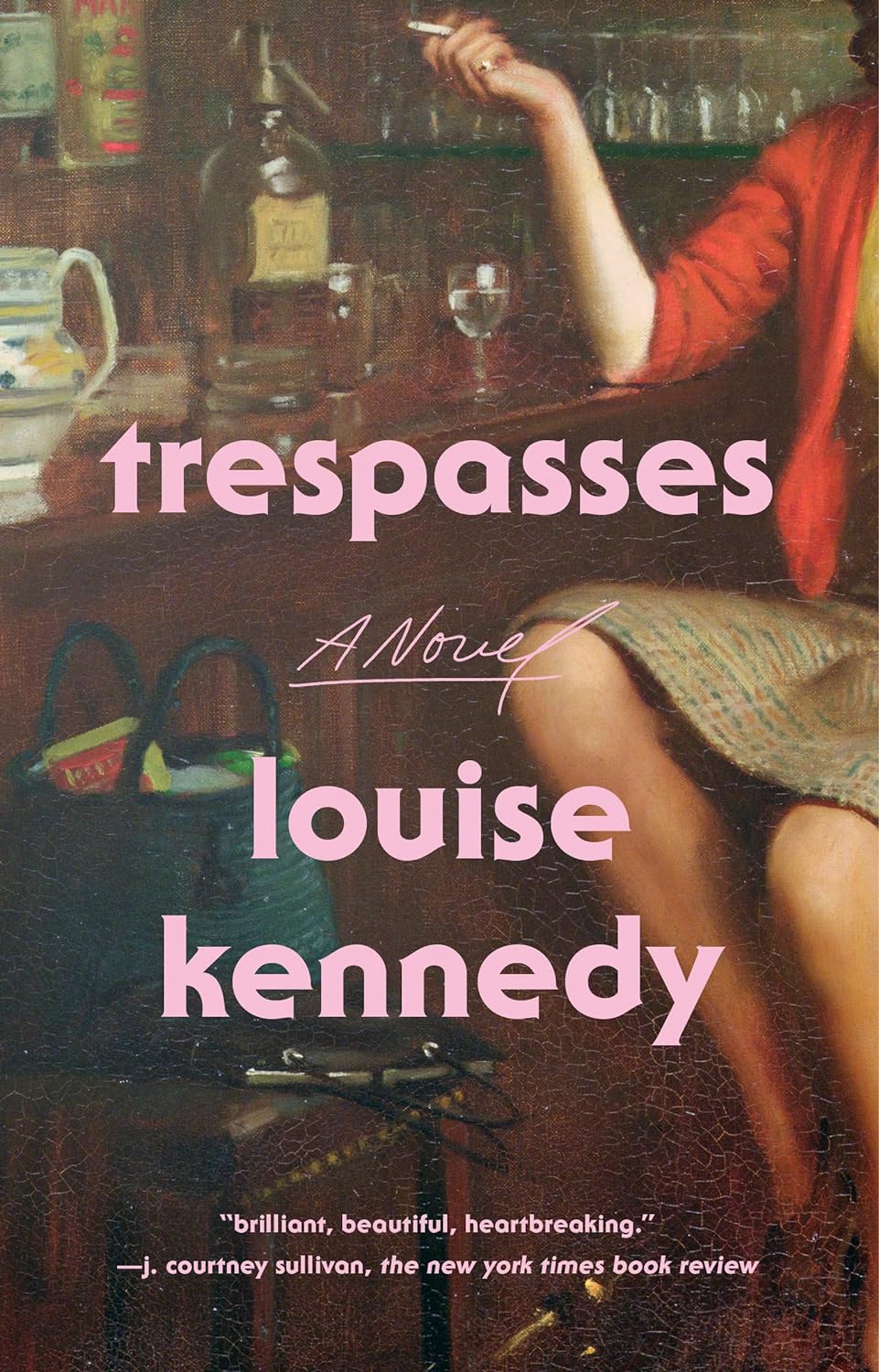Trespasses by Louise Kennedy
“Trespasses” by Louise Kennedy is a poignant and evocative novel set against the backdrop of the Troubles in Northern Ireland during the 1970s. The story follows the life of a young Catholic schoolteacher, Cushla, who becomes entangled in a forbidden romance with an older Protestant man, what is essentially a taboo relationship in a divided society marked by deep sectarian strife. As their affair unfolds, Cushla navigates the complexities of personal desire and societal expectations, while the escalating violence surrounding them threatens to engulf their lives. Kennedy’s lyrical prose captures the tension of a time and place where love, loyalty, and the desire for freedom clash powerfully, making “Trespasses” a moving exploration of identity, belonging, and the human capacity for resilience in the face of conflict.
$18.00
“Trespasses” by Louise Kennedy is a beautifully crafted and emotionally charged novel that transports readers to Northern Ireland during the tumultuous period known as the Troubles in the late 20th century. Through the lens of its protagonist, Cushla, a young Catholic primary school teacher, the book explores themes of love, loss, loyalty, and the complexities of navigating personal desires in a deeply divided society.
Set in a small town, “Trespasses” delves into Cushla’s life as she grapples with her roles as an educator, a daughter, and a member of a conflicted community. The story begins to unfold amidst a backdrop of political violence and social unrest, capturing the precariousness of daily existence in an environment historically fraught with tension. Cushla’s workplace, a local school, symbolizes a space often marred by the dichotomies of the time—Catholic versus Protestant, nationalist versus unionist—and serves as a constant reminder of the barriers that separate her community.
As the narrative progresses, Cushla finds herself drawn into a complex and dangerous love affair with Michael, an older Protestant man who owns a bar in town. Their relationship is fraught with peril, both emotionally and socially, as they grapple with the significance of their differing backgrounds in a world where such divisions shape identities and futures. Michael, with his charm and worldly outlook, brings a sense of excitement and possibility into Cushla’s life, challenging her understanding of love and loyalty. Yet, with this passion comes the ever-present threat of external judgment and violence, intensifying the stakes for both characters as they navigate their feelings against the harsh realities of their environment.
Kennedy masterfully depicts the tension of this illicit relationship, exploring how love can flourish in even the most hostile conditions. She paints a vivid picture of Northern Ireland at the time, employing rich, sensory details that immerse the reader in the sights, sounds, and politics of the era. Through Cushla’s eyes, we experience the anxiety of living under constant threat, the weight of familial expectations, and the moral dilemmas that arise in a time of conflict. The narrative is not just about individual love but also reflects the larger, societal struggles and the longing for peace amidst unrest.
Cushla’s life is further complicated by her family’s history and the expectations placed on her as a woman in a fractured society. Her relationships with her parents, particularly with her father, who harbors deep-seated resentments, provide insight into the generational impacts of violence and division. Kennedy explores the tension between personal desires and family loyalty, illustrating how the past continues to shape the present.
As Cushla’s relationship with Michael deepens, their connection is forced to confront the dangerous realities of their worlds. The threat of violence looms large, and the couple must consider not only their own safety but the implications of their choices for those around them. Kennedy expertly navigates the emotional landscape, illustrating the fragility of love in a world defined by conflict and the courage it takes to defy societal norms.
“Trespasses” is not merely a love story; it is a profound exploration of identity, belonging, and the human spirit’s resilience in the face of despair. Kennedy’s prose is both lyrical and haunting, capturing the beauty and brutality of her characters’ lives. The novel evokes a sense of urgency and heartbreak as it leads toward a climax that forces readers to grapple with the harsh realities of life shaped by war.
Ultimately, “Trespasses” invites reflection on the complexities of human relationships against the tumult of history. It is a poignant portrayal of how love can exist and even thrive in the most challenging circumstances, offering a narrative that resonates deeply with anyone who has experienced the transformative power of connection and the heavy burdens carried by those who live within divided communities. Through its exploration of personal and political landscapes, “Trespasses” sheds light on the wounds of history and the longing for understanding and compassion in a world often marked by division.
